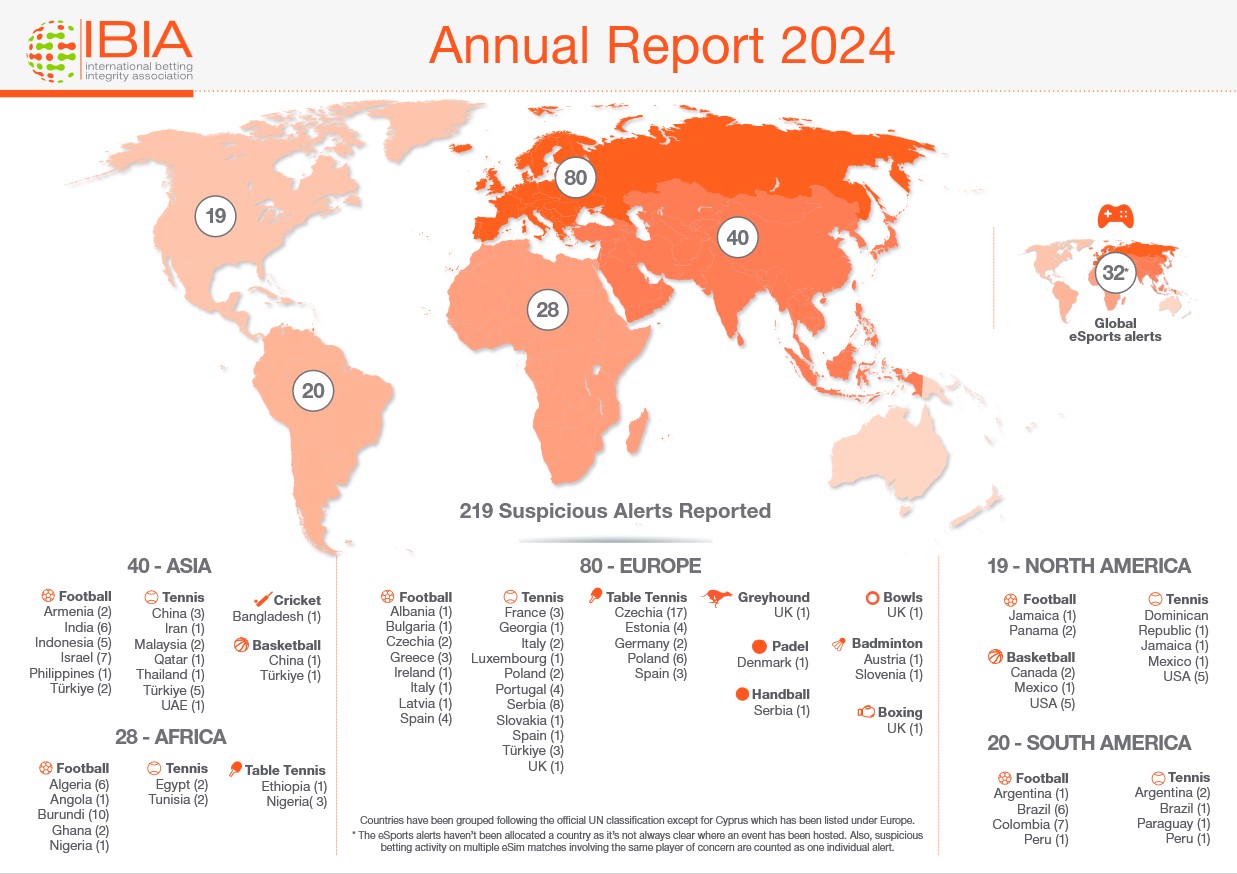The Influence of Match-Fixing on Legal Betting in Canada

In Canada, where betting is legal and well-regulated, match-fixing remains a grey area. There are no laws that criminalize manipulation, and regulators typically catch only those who act carelessly. Global statistics offer some hope: in 2024, the number of suspicious matches worldwide dropped by 17% – down to 1,108 cases (according to Sportradar). But Canada stands out as an exception to this trend.

While Europe has seen an impressive decline of 34%, and Brazil is making significant progress in combating suspicious soccer matches (down 48%), Canadian sport remains vulnerable. There are neither strict laws nor a unified monitoring system. In this article, we explore how criminals exploit legal betting and whether international practices can be applied in Canada.
Match-fixing: a threat to Canadian sports and economy
Match-fixing is a pre-arranged agreement among players, referees, or clubs to manipulate a result for profit through betting or other illegal schemes. Unlike regular fraud, it harms more than just bookmakers – it undermines fans’ trust, damages league reputations, and impacts the entire sports industry’s economy.
Let’s break down the key consequences:
- A blow to legal betting. Manipulation erodes trust in the legal wagering system. When match-fixing scandals surface, players begin to question the integrity of the events themselves. This jeopardizes the growth of licensed platforms. In Ontario, where over 30 licensed betting operators are active and total quarterly bets amount to billions, these risks are particularly serious. One vivid example: in 2022, Ontario temporarily banned UFC betting after a scandal involving suspicious bets. The decision resulted in millions in losses for legal operators and reduced the province’s revenue from licensing fees.
- Reputational damage for leagues and teams. Every scandal involving match-fixing or betting rule violations hits the image of sports organizations hard. Recent examples include the suspension of NHL player Shane Pinto and the NBA’s investigation into Jontay Porter. These events weaken the trust of fans and sponsors alike. Reputational damage leads to franchise devaluation, decreased viewer interest, and shrinking ad contracts – especially dangerous for leagues aiming for global expansion and big-name partnerships.
- Growth of the underground market. Despite the legalization of betting in Canada, over $14 billion a year is estimated to flow through grey and offshore channels – mainly via unlicensed websites. The problem worsens due to easy online access to foreign platforms, allowing users to bypass national restrictions.
Thus, match-fixing creates a domino effect that touches every level of Canada’s sports ecosystem – from government revenue to public confidence.
How match-fixing schemes operate
Most schemes begin with recruiting athletes, coaches, or referees. The goal is to prearrange a result or specific in-game actions (like the number of fouls, yellow cards, or a certain losing score). At-risk individuals are often young or low-paid participants, especially in less popular leagues and disciplines. Recruiters operate discreetly using anonymous communication channels. Sometimes, pressure escalates to threats or blackmail.
Once the deal is in place, insiders or their associates place large bets through illegal offshore bookmakers. These platforms are poorly regulated, don’t share data with authorities, and allow abnormal wagers without restrictions. VPNs, fake accounts, and cryptocurrency are often used – making detection even harder.
When the outcome is secured, those involved cash out through shadow channels. Spikes in unusual bets can go unnoticed – particularly in obscure matches or Asian leagues, which Western regulators struggle to monitor.
The main goal is quick profit. Match-fixing can bring in tens or even hundreds of thousands of dollars per incident. Some criminal groups do this on a large scale, turning result manipulation into a business model.
The fight against match-fixing in Canada
Ontario is the only Canadian province with a structured system for combating match-fixing. Since launching its legal online betting market in 2022, the province has enforced AGCO (Alcohol and Gaming Commission of Ontario) standards that require all operators to work with independent monitoring organizations like IBIA and IC360. Uniquely, Ontario’s model also integrates the provincial police’s Investigation and Support Bureau into AGCO’s framework.
AGCO emphasizes that licensed bookmakers aren’t just market players – they’re a crucial part of the sports integrity system. They get early access to betting data, have direct links to leagues, and possess the tools for fast response.

Under AGCO’s rules, every operator must monitor user activity in real time, detect anomalies, and immediately report them to the regulator. This applies to both large suspicious wagers and unusual user behaviour. Reports include analytics and internal data, enabling quicker reviews and investigations. We’ve also previously covered how betting ads are regulated in the province.
Are these measures enough?
Experts say Ontario’s regulation is among the strictest in North America. Independent monitoring, police involvement, and operator obligations form a strong framework to protect sports from manipulation. However, no system is foolproof. The rise of micro-bets and in-game wagers makes detecting suspicious activity harder. For instance, bets on a single pitch or swing in baseball offer little time for analysis.
Additionally, Canada still hasn’t signed the Macolin Convention – an international treaty aimed at fighting match-fixing. Over 30 countries, including Australia and Monaco, are already part of it. Canada’s Criminal Code lacks specific provisions against match manipulation, making it difficult to prosecute offenders on a national level.
The legalization of betting in Canada gave fans a new way to enjoy sports – and criminals a new way to exploit it. Until the government closes legal loopholes and starts prosecuting fixers, fraudsters will continue profiting from the public’s trust in fair play.
Relevant news

How Technology Is Transforming Online Sports Betting in Canada
Just ten years ago, placing a bet on a match meant visiting a sportsbook website,…

Why Canadian Bettors Prefer Bet365 and Other Key Habits
Ahead of one of the most event-packed sports years – with the Winter Olympic Games,…

The Canadian Bettor’s Calendar for 2026
2026 is set to be a busy year for sports betting fans. The main feature…

Online Betting in Canada: When Convenience Turns Into a Problem
Online betting has become firmly embedded in the habits of Canadian players. There is no…

How Betting Could Address Canada’s Sports Funding Crisis
While Canadian fans actively place bets on their favourite athletes, many athletes themselves are working…

Betting Exchanges and Sharp Sportsbooks in Canada
If you bet regularly and follow the market, you've probably noticed that odds for the…
